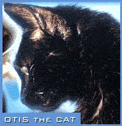Elaine West–the founder of Rooterville Animal Sanctuary, a refuge housing rescued farm animals she launched in Melrose, Florida, more than two decades ago—explains the origin of her lifelong love of pigs.  West pinpoints a particular pig that a local Humane Society was about to send home with “adopters”
West pinpoints a particular pig that a local Humane Society was about to send home with “adopters” she felt certain were planning to eat the animal, so she intervened and rescued the pig…a pivotal episode that effectively spawned Rooterville. She recalls the early years of Rooterville, facing relentless challenges, traveling a tricky learning curve on how to run a sanctuary and how to care for assorted farm animals—many of whom had experienced neglect or abuse. In response to my specific inquiry, she addresses the extent to which she looks at her work at Rooterville as a calling, West allows that it is a calling—but, perhaps viewed through the lens of decades of experience—wishes that it weren’t a calling. More than once during our conversation, she acknowledged with a sigh of resignation that she’s older, and disabled, and figured she’d be retired by now. On a related note, she mentions she no longer takes in rescued pigs or other animals when approached to do so, after many years of saying “yes” to nearly all such entreaties. She concurs when I observe that her work guiding Rooterville feels like it’s propelled by a sort of spirituality. West recounts the unpleasant chapter of Rooterville history, in which she decided to relocate after a foundation–
she felt certain were planning to eat the animal, so she intervened and rescued the pig…a pivotal episode that effectively spawned Rooterville. She recalls the early years of Rooterville, facing relentless challenges, traveling a tricky learning curve on how to run a sanctuary and how to care for assorted farm animals—many of whom had experienced neglect or abuse. In response to my specific inquiry, she addresses the extent to which she looks at her work at Rooterville as a calling, West allows that it is a calling—but, perhaps viewed through the lens of decades of experience—wishes that it weren’t a calling. More than once during our conversation, she acknowledged with a sigh of resignation that she’s older, and disabled, and figured she’d be retired by now. On a related note, she mentions she no longer takes in rescued pigs or other animals when approached to do so, after many years of saying “yes” to nearly all such entreaties. She concurs when I observe that her work guiding Rooterville feels like it’s propelled by a sort of spirituality. West recounts the unpleasant chapter of Rooterville history, in which she decided to relocate after a foundation– whose funding had helped sustain the organization since 2011—ended the support of Rooterville, and
whose funding had helped sustain the organization since 2011—ended the support of Rooterville, and other sanctuaries, in 2021. This necessarily led to a fairly singular development amongst animal sanctuaries: reinvention. West describes the measures she implemented, some of which involved embracing agritourism (for example, you can stay at Rooterville in a covered wagon or the farmhouse, pitch a tent and camp there, or park your RV on site. Heck, you can even hold your wedding at Rooterville! West says only one couple has gotten married there so far, but hopes others will follow suit. She adds that she shifted gears in this direction—including making part of Rooterville available to rent for parties or other events, and daily enterprises, like cow cuddling–aiming to revise the sanctuary’s fundraising model, recognizing that merely relying on donations is no longer viable. West also points out that visitors to Rooterville are afforded more freedom than those visiting other sanctuaries, where the tour is often regimented in terms of where and when the sightseers may travel. That flexibility is mirrored by most of the animals, regardless of breed, having the freedom to roam amongst each other and interact. (https://www.rooterville.org/)
other sanctuaries, in 2021. This necessarily led to a fairly singular development amongst animal sanctuaries: reinvention. West describes the measures she implemented, some of which involved embracing agritourism (for example, you can stay at Rooterville in a covered wagon or the farmhouse, pitch a tent and camp there, or park your RV on site. Heck, you can even hold your wedding at Rooterville! West says only one couple has gotten married there so far, but hopes others will follow suit. She adds that she shifted gears in this direction—including making part of Rooterville available to rent for parties or other events, and daily enterprises, like cow cuddling–aiming to revise the sanctuary’s fundraising model, recognizing that merely relying on donations is no longer viable. West also points out that visitors to Rooterville are afforded more freedom than those visiting other sanctuaries, where the tour is often regimented in terms of where and when the sightseers may travel. That flexibility is mirrored by most of the animals, regardless of breed, having the freedom to roam amongst each other and interact. (https://www.rooterville.org/)
 ALSO: I spoke with Emily Kapes, chief curator at the James Museum of Western & Wildlife Art, the Saint Petersburg repository of various types of art, often including fauna-oriented work. Kapes briefly described the James Museum, but was chiefly there to discuss “Rare Air: Endangered Birds, Bats, Butterflies & Bees,” a current exhibition on view at the James through Sept. 14. She describes “Rare Air”: detailed illustrations of endangered North American species who fly, noting the intricate drawings of artist Sarah Kaizar—this is a solo exhibition by Kaizar—and the show’s underlying message to protect these at-risk species against further harm, so we don’t lose them altogether. She also underscores the rarity of art pieces depicting bats! (https://thejamesmuseum.org/special-exhibitions/)
ALSO: I spoke with Emily Kapes, chief curator at the James Museum of Western & Wildlife Art, the Saint Petersburg repository of various types of art, often including fauna-oriented work. Kapes briefly described the James Museum, but was chiefly there to discuss “Rare Air: Endangered Birds, Bats, Butterflies & Bees,” a current exhibition on view at the James through Sept. 14. She describes “Rare Air”: detailed illustrations of endangered North American species who fly, noting the intricate drawings of artist Sarah Kaizar—this is a solo exhibition by Kaizar—and the show’s underlying message to protect these at-risk species against further harm, so we don’t lose them altogether. She also underscores the rarity of art pieces depicting bats! (https://thejamesmuseum.org/special-exhibitions/)
COMEDY CORNER: Kevin Nealon’s “Cows on the Roof” (https://kevinnealon.com/)
MUSIC: Rebekah Pulley’s “Talking Animals Theme,” instrumentals
NAME THAT ANIMAL TUNE: Rolling Stones’ “Monkey Man”
AUDIO ARCHIVE:
Listen Online Now:



